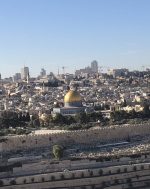Myanmar’s democracy was always a bit of an aspiration. Now, we don’t have even that

Aung San Suu Kyi’s slowly darkening image mirrored that of her country’s political transition to democracy.
/FAITH, HOPE…

“Some people say there is a God; others say there is no God; the truth probably lies somewhere in between”
– W. B. Yeats
A fortnight after the military coup in Myanmar, the dismal truth is how little hope there is for a return to normal order.
That’s because the normal order for Myanmar would be a managed democracy or at least, a quasi-democracy.
And that doesn’t seem to have pleased anyone. Not the country’s powerful army, nor its deposed de facto leader Aung San Suu Kyi or Ms her many admirers around the world and certainly not Bangladesh next door.
With Ms Suu Kyi at the helm as State Counsellor and with the army in control (of three ministries and with one-quarter of the vote in parliament) Myanmar’s democracy was always a bit of an aspiration.
As former Indian diplomat and politician Shashi Tharoor has said, democracy in Myanmar was “clearly a work in progress”.
So Myanmar wasn’t a real democracy and it wasn’t committed to all the liberal, good Samaritan principles we often think of as de rigeur for democratic governments in real democracies.
Observers and analysts metaphorically wrinkled their noses at Myanmar.
On the one hand, Ms Suu Kyi had impressive credentials as a freedom fighter, having spent 15 years under house arrest, separated from her husband and children, chasing a surely beautiful dream of democratic rights for all. In 1991, she was given the Nobel Peace Prize as a celebrated resistance icon.
But when in 2011, the military junta decided to abjure the absolute control it had acquired over Myanmar half-a-century ago and unveiled a slow political transition, it was only willing to go part of the way.
Myanmar’s political transition hasn’t seemed much like democracy over the last decade because the army seemed to have made clear its distaste for an overly exuberant real democracy.
As for Ms Suu Kyi, she seemed willing to do what the army said.
Or perhaps, and here’s what seemed like another hideous possibility – in the years that she was in charge of the civilian government, Ms Suu Kyi was actually doing what she wanted? And that this was also what the army wanted?
The hideous suspicions outlined above gained ground when Ms Suu Kyi did nothing to help the persecuted Rohingya Muslim people. In 2013, she defended the campaign of persecution of the Rohingyas to BBC journalist Mishal Hussain. In 2017, she said the alleged persecution was “fake news”. In 2019, she flew to The Hague to passionately explain to the International Court of Justice that Myanmar was in the right. (In the 2013 interview, incidentally, Ms Suu Kyi previewed Donald Trump’s “many sides” theory of the moral equivalence between the far right and the people who protest against them. Click here to find out how to listen to the interview.)
To Ms Suu Kyi’s many foreign admirers, the military campaign against the Rohingya was ethnic cleansing and an ugly manifestation of deep-seated racism and Buddhist nationalism. At The Hague, ‘The Lady’, as Ms Suu Kyi has often been called with respectful admiration, even refused to say the word “Rohingya”. Thus, she made clear that she would not challenge the majority view in Myanmar that the victims were “interlopers” from Bangladesh.
Suffice it to say that Myanmar’s supposedly democratic leader didn’t seem to be about democracy and justice for all.
This is what invests the situation today – weeks after the February 1 military coup – with a particular sense of despair. What would normal democratic order even be in Myanmar and who and what would it be good for?
The world’s manifest lack of hope in and for Myanmar is apparent in the reaction to the coup. Chinese official media called it a “cabinet reshuffle”. China blocked the adoption of a statement of condemnation at the UN Security Council. And while some say that India should stand for democracy and human rights in its neighbour, there is also a call for caution.

